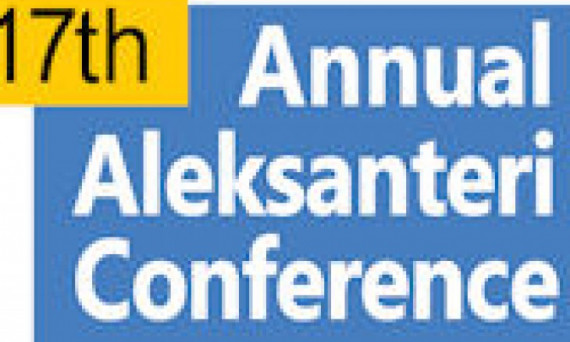25-27 October 2017, researchers of the STS Center Lilia Zemnukhova and Nickolay Rudenko will participate in the XVII annual international conference organized by the Aleksanteri Institute at the University of Helsinki.
Lilia zemnukhova will report to the Educational and Professional Trajectories: Post-Soviet Retraining. Section 7E: Life Trajectories and Decision-making Under Uncertainty Everyday in Post-Soviet Russia. The report of Nikolay Rudenko: Russian Software: Discourses and Practices of Nationalization of IT. On section 7А: Industry 4.0, Digitalization and IT
Abstracts:
Nickolay Rudenko, Russian Software: Discourses and Practices of Nationalisation of IT
Since the first January of 2016 Russian Government began to create Russian software registry, that should become the only sectioned list of the developers who will have a capacity to sell their IT products to the municipal and federal agencies. The reasons for such initiative are manifold: the long for safety in economic and technological ways, the wish to promote and protect Russian business from the State point of view, as well as professional lobby from the Russian IT industry. However, the creation of Russian software registry faced with a lot of problems: lack of certainty of who should be attested as Russian developer, the ambiguity of how the Russian IT industry should be protected, the changing relations between the Government and IT industry. It seems that while the State and some part of IT community make an attempt to create an image of the unity in why Russia need to create the notions of Russian developer and Russian software, one can find a lot of controversies in how these notions are created and managed. In the speech, I would like to present the results of the research on the creation of Russian software registry, based on the analysis of law, policy documents, and mass media regarding this Governmental initiative.
Lilia Zemnukhova, "Educational and Professional Trajectories: Post-Soviet Retraining"
I focus on engineering culture in the (post-)Soviet world, which appeared to be a mixture of formal structure and informal practices. Whereas the state initiated and promoted the universal system of ubiquitous education stuffed with extracurricular activities, the community of teachers, scientists, and engineers took advantage of infrastructural facilities and were in a way free to bring up a new generation of future IT professionals. The nature of Russian IT training is based on, but not exhaustive with education. The success of Russian techies around the world was also highly determined by social and economic transformations in the post-Soviet countries. Russian IT specialists had to face difficulties to overcome and challenges to accept. Their professional trajectories have been shaping under conditions of drastic changes of economic situation, so their unique experiences tell much about the need for retraining to become visible on the surface of IT world.
